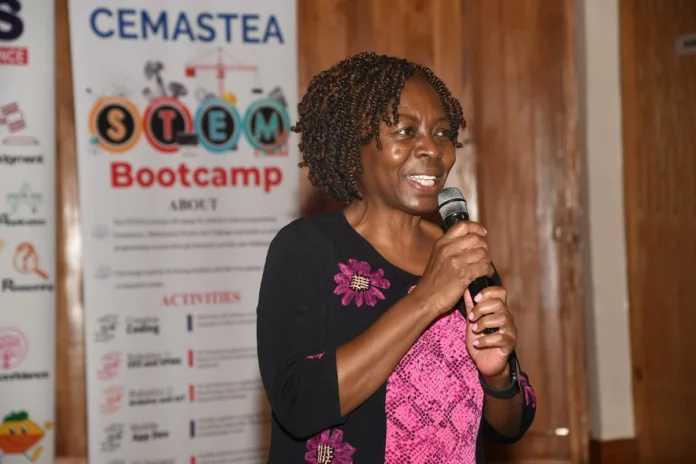In an era where innovation and technological advancements wield unprecedented influence over our world, Jacinta Akatsa, the Chief Executive Officer of the Centre for Mathematics, Science, and Technology Education in Africa, passionately encourages Kenyan parents to go beyond conventional education. She urges them to enroll their children in coding, programming, and robotic lessons, emphasizing that these skills are not just a supplement to knowledge but a crucial investment in preparing the youth for a rapidly evolving landscape.
Since 2022, the institution has been offering coding and programming skills to learners from Grade 3 to Form 4 through its Science, Technology, Engineering, and Mathematics (STEM) Boot Camp project. Akatsa urges parents, especially during holidays, to take advantage of these opportunities, creating an environment where young minds can nurture their creativity, an incubator for discovering innovation.
The central message is clear: knowledge alone has limited power; its true potency unfolds when applied to craft real-world solutions. Akatsa emphasizes the significance of these boot camp-acquired skills, asserting their effectiveness in equipping youth for the challenges and opportunities of the 21st century.
The government’s approval of a new curriculum for primary and secondary school students, incorporating coding, marks a significant stride in this direction. Kenya, by implementing such an innovative course load, positions itself on par with other African nations and ensures its students are not disadvantaged when compared to those from developed nations.
Now in their fourth iteration, the STEM Boot Camps cover a range of skills, creative coding, robotics, mobile app development, graphics design, 3D technology, mathematics, and science innovations. The CEO emphasizes that the goal goes beyond imparting technical prowess; it aims to cultivate logical thinking, collaboration, and digital literacy, essential qualities for tomorrow’s landscape.
The government’s broader agenda, promoting technology use through a digital literacy program, aligns with the importance of coding in the Competency-Based Curriculum (CBC). This alignment recognizes that coding and programming are not just future skills; they constitute our present language. As Makoba Kizito, CEMASTEA’s Dean for the Biology Department, asserts, those unable to code will be labeled as illiterate: “Those who are unable [to code] will be clustered as being illiterate.”
Beyond the acquisition of technical skills, these initiatives have a profound impact. Akatsa underscores that boot camp experiences not only ignite students’ interest in pursuing STEM-related careers at higher education levels but also cultivate their creativity and innovation. The result is the formation of a community filled with problem solvers and critical thinkers.
Expressing gratitude, Akatsa assures that the institution will continue the program in 2024, acknowledging the invaluable support of CEMASTEA partners: Universal Concept Mental Acceleration System Kenya, Stem Impact Centre Kenya, STEMTRIX, Start Innovation Alliance, and Steam Interactive.
